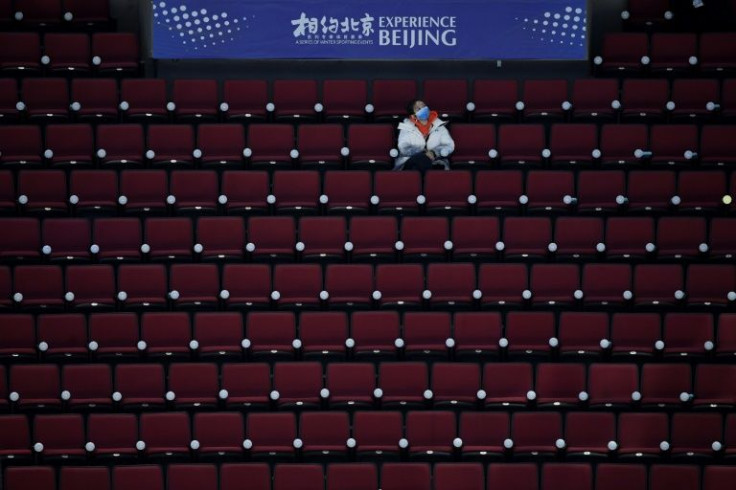Beijing Tightens Covid-19 Entry Rules Ahead Of Olympics
Strict new Covid-19 restrictions come into force in Beijing on Wednesday for visitors to the Chinese capital, requiring negative tests and dramatically cutting domestic flights as the city raises the drawbridge against the coronavirus ahead of the Winter Olympics.
With less than 100 days to go to the games in February, China is bracing for a challenge to its zero-Covid strategy when thousands of international athletes descend on Beijing after months of strict border controls.
All visitors to the capital must now show a negative Covid test result from the past 48 hours, while flights from higher risk areas within China will be cancelled or limited to one a day at reduced capacity.
"Beijing is the capital and has strong regional and international connections... The virus must not be introduced into Beijing and it must not spread in Beijing," city spokesman Xu Hejian said at a press conference on Tuesday.
The new restrictions also include Covid tests every three days for the more than 30,000 people working with cold-chain imports in the city.
China has said that earlier outbreaks among Beijing market workers and dock workers in eastern China's Qingdao were linked to cold-chain products.

Case numbers in China remain far lower than in most countries, with only eight domestic infections on Wednesday.
But authorities are taking no chances as international attention focuses on Beijing in the run-up to the winter games.
No spectators from outside China will be allowed to attend the Olympics, which will be held from February 4 to 20 in a "closed-loop" bubble.
And the estimated 2,900 athletes must be fully vaccinated or face 21 days' quarantine upon arrival. They will also be tested daily.
China has already imposed extremely strict border controls since last March, leaving families separated and many unable to return to work from outside the country.
This year, rules have eased slightly, but those entering the country still need to undergo weeks of hotel quarantine, monitoring and testing.
© Copyright AFP {{Year}}. All rights reserved.





















